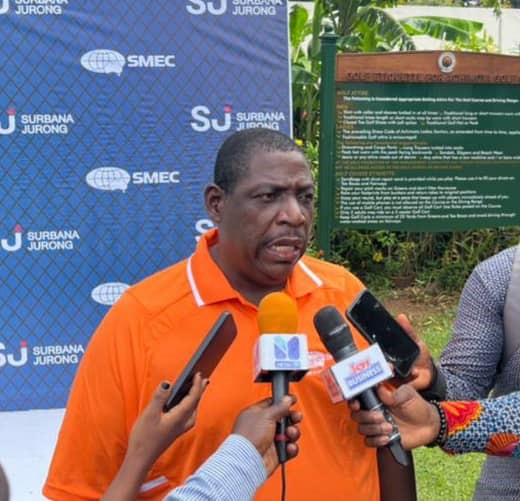Technical Director and Member of the Surbana Jurong Group (SMEC) Ghana, an engineering, management and development consultancy, Munesu Dizamuhupe, has said that the Electricity Company of Ghana is suffering losses because it is not using smart metres which can deal with commercial and technical losses.
ECG, according to the Energy Minister, Dr. Matthew Opoku Prempeh, faces technical and commercial losses of about GH¢3.2billion as a result of power theft, malfunctioning metres, obsolete infrastructure, ineffective revenue collection, among others, all of which threatens the future of the state-owned power utility and the electricity value chain.
Mr. Dizamuhupe, speaking to the media, stated that proactive action is required to minimise losses in the energy sector, with the use of intelligent metres being a significant component.
“The reason why power is being stolen is that the metres which were being used a long time ago are not intelligent at all. It just takes power, gives it to someone and it charges; but the future is to use intelligent metres. The intelligent metres know their customer, know what the customer is supplying, and report back to ECG.
“So, if power is being stolen along the way through that customer, the customer pays lesser than what he/she should, and what the metre reports,” he said at a project close out celebration as SMEC completed its role in the Ghana Power Compact II project where it was to help reduce technical losses across Greater Accra’s distribution network.
“The main issues that need to be solved were a lot of technical losses in the transmission and distribution system, and also non-technical losses such as power theft and things like that. So, most of the projects we implemented were all tailor-made to provide solutions.
“We, first of all, put in two bio supply points to inject power sources. That is a major contributor to reducing technical losses; which means we are bringing power closer to the distribution services. The other, which we implemented, was to reduce technical losses by reducing the length of distribution lines to make them shorter by putting in more transformers closer, and then what we call MV systems and we constructed over 1,400 kilometres of those lines to solve that problem.
“In terms of solving non-technical losses, there are two things that we did, we put in a geographical system to map up the whole assets of ECG. We implemented the metre management system which will take in almost 3 million new advanced metering systems, which can report when there are problems,” he added.
He however suggested that projects like the power compact and others capable of addressing energy sector concerns be fostered and championed nationwide to ensure efficiency.
For his part, the Operations Manager, Emmanuel Mante, said after the execution of the project, communities such as those at Kasoa and Pokuasi enclaves are experiencing improved power quality and reliability, thereby, offering protection to electronic and electrical appliances.
Power sector
Ghana’s power sector has been identified as constituting a critical binding constraint to the growth of the national economy. The identified constraints of the power sector are two-fold – unreliable electricity supply and insufficient access to electricity.
With the combined challenges of persistent high load growth and limited addition of generation capacity, the margin between generation capacity and maximum demand has reduced considerably over the last 10 years.
The Ghana Power Compact, funded by the Millennium Development Authority (MiDA), seeks to address these challenges by creating an enabling environment for private investment in additional generations, enhancing the governance and regulatory environment of the power sector, and strengthening the corporate governance, operational efficiency, and financial viability of the power distribution utilities.










